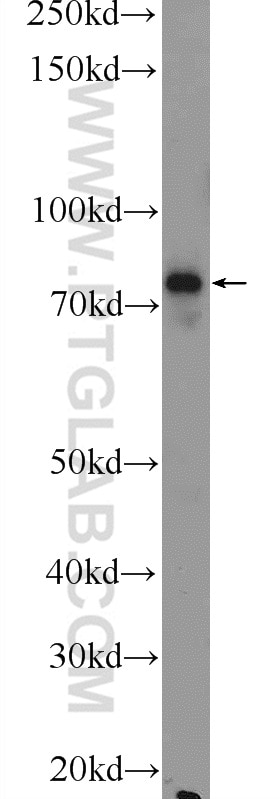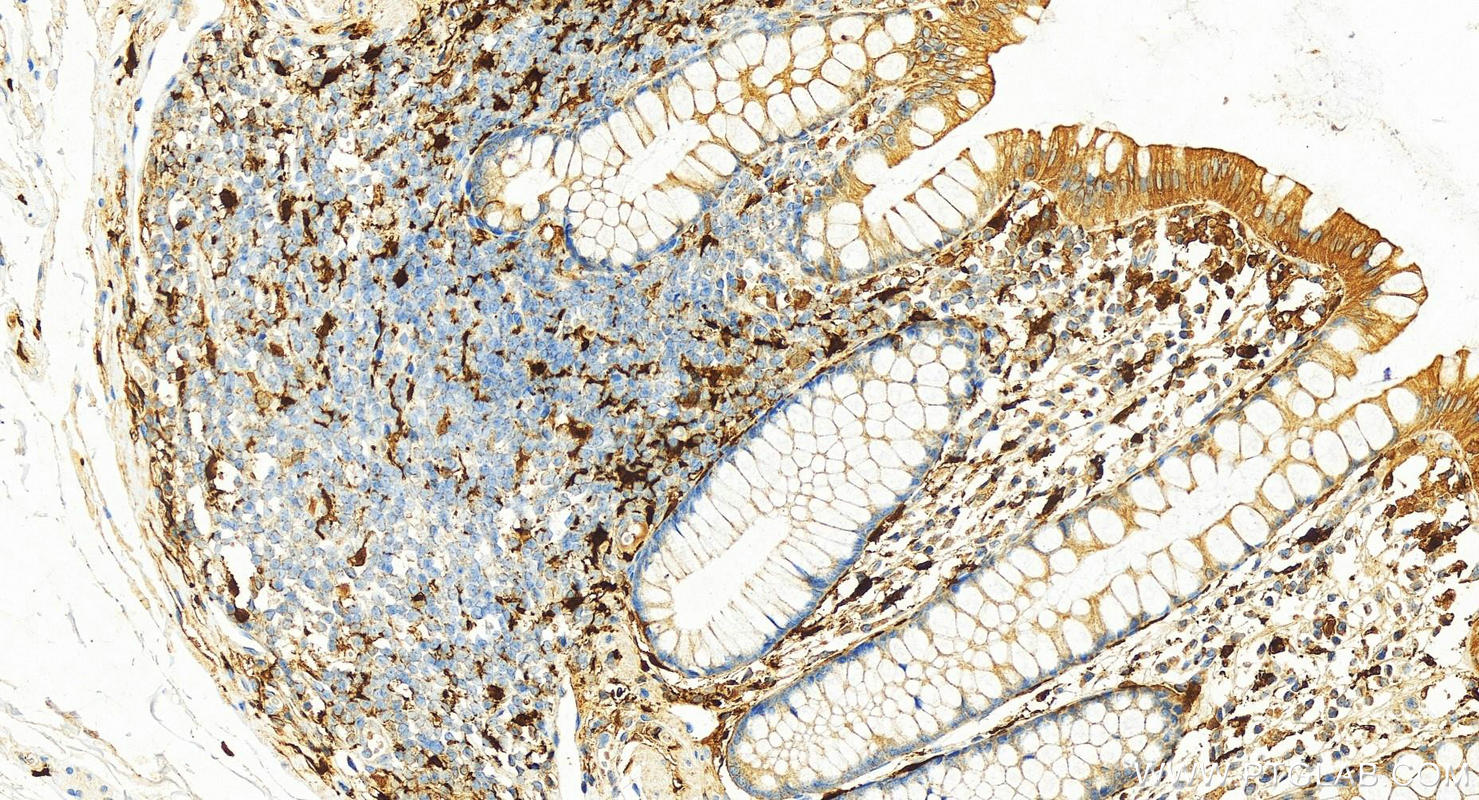Tested Applications
| Positive WB detected in | mouse lung tissue |
| Positive IHC detected in | human normal colon Note: suggested antigen retrieval with TE buffer pH 9.0; (*) Alternatively, antigen retrieval may be performed with citrate buffer pH 6.0 |
Recommended dilution
| Application | Dilution |
|---|---|
| Western Blot (WB) | WB : 1:200-1:1000 |
| Immunohistochemistry (IHC) | IHC : 1:50-1:500 |
| It is recommended that this reagent should be titrated in each testing system to obtain optimal results. | |
| Sample-dependent, Check data in validation data gallery. | |
Product Information
17223-1-AP targets Factor XIIIa in WB, IHC, ELISA applications and shows reactivity with human, mouse, rat samples.
| Tested Reactivity | human, mouse, rat |
| Host / Isotype | Rabbit / IgG |
| Class | Polyclonal |
| Type | Antibody |
| Immunogen |
CatNo: Ag11059 Product name: Recombinant human F13A1 protein Source: e coli.-derived, PGEX-4T Tag: GST Domain: 383-732 aa of BC027963 Sequence: RPDLPVGFGGWQAVDSTPQENSDGMYRCGPASVQAIKHGHVCFQFDAPFVFAEVNSDLIYITAKKDGTHVVENVDATHIGKLIVTKQIGGDGMMDITDTYKFQEGQEEERLALETALMYGAKKPLNTEGVMKSRSNVDMDFEVENAVLGKDFKLSITFRNNSHNRYTITAYLSANITFYTGVPKAEFKKETFDVTLEPLSFKKEAVLIQAGEYMGQLLEQASLHFFVTARINETRDVLAKQKSTVLTIPEIIIKVRGTQVVGSDMTVIVEFTNPLKETLRNVWVHLDGPGVTRPMKKMFREIRPNSTVQWEEVCRPWVSGHRKLIASMSSDSLRHVYGELDVQIQRRPSM Predict reactive species |
| Full Name | coagulation factor XIII, A1 polypeptide |
| Calculated Molecular Weight | 732 aa, 83 kDa |
| Observed Molecular Weight | 80-85 kDa |
| GenBank Accession Number | BC027963 |
| Gene Symbol | Factor XIIIa |
| Gene ID (NCBI) | 2162 |
| RRID | AB_2878363 |
| Conjugate | Unconjugated |
| Form | Liquid |
| Purification Method | Antigen affinity purification |
| UNIPROT ID | P00488 |
| Storage Buffer | PBS with 0.02% sodium azide and 50% glycerol, pH 7.3. |
| Storage Conditions | Store at -20°C. Stable for one year after shipment. Aliquoting is unnecessary for -20oC storage. 20ul sizes contain 0.1% BSA. |
Background Information
Factor XIIIa is a blood proenzyme that catalyzes intermolecular cross-linking of fibrinogen and is involved in clotting cascade. It has been identified in various tissues including placenta, uterus, and prostate. Anti- Factor XIIIa has been found to be useful in differentiating between dermatofibroma (90% positive) and desmoplastic malignant melanoma (negative). Factor XIIIa positivity is also seen in capillary hemagioblastoma, hemangioendothelioma, hemangiopericytoma, xanthogranuloma, xanthoma, hepatocellular carcinoma, glomus tumor, and meningioma.
Protocols
| Product Specific Protocols | |
|---|---|
| IHC protocol for Factor XIIIa antibody 17223-1-AP | Download protocol |
| WB protocol for Factor XIIIa antibody 17223-1-AP | Download protocol |
| Standard Protocols | |
|---|---|
| Click here to view our Standard Protocols |






